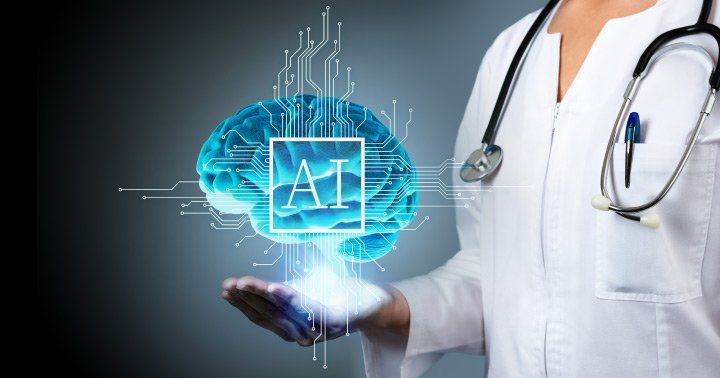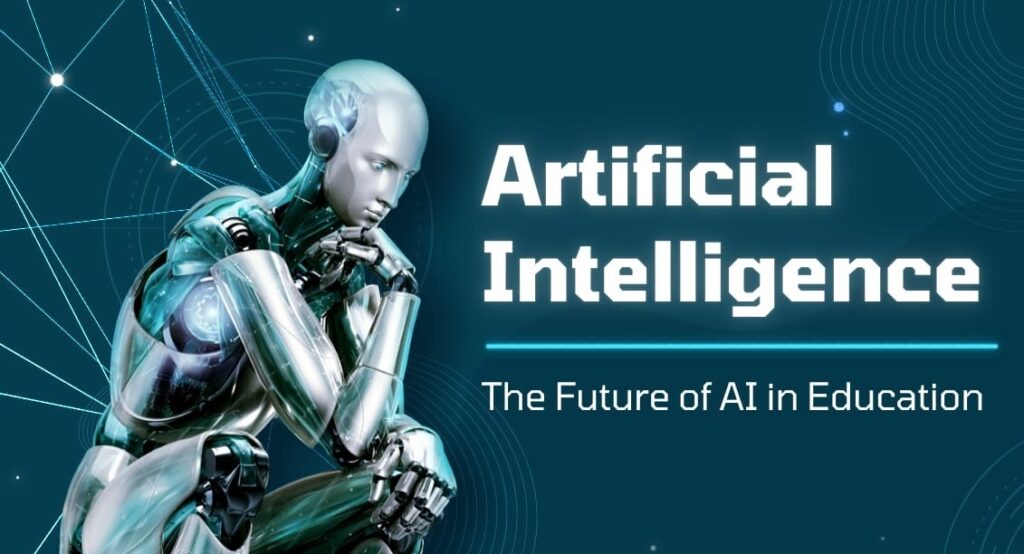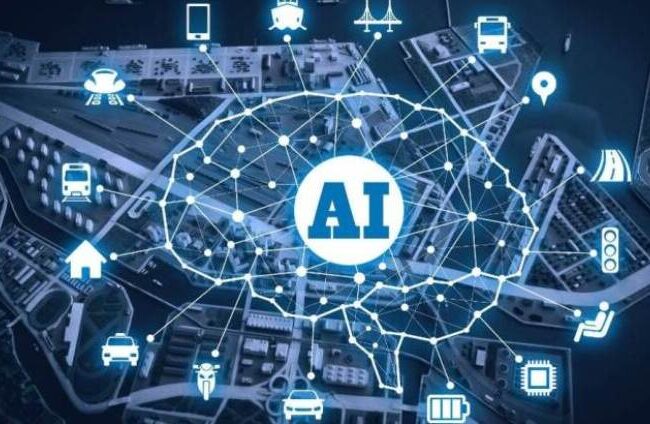Artificial intelligence (AI) is a dynamic aspect of the present that is quietly woven into the fabric of our daily lives; it is no longer a thing of the far future. AI is quietly revolutionizing the way we live, work, and play. Let’s explore how this transformative technology is making an impact.
Smart Homes: The AI-Powered Abode
Imagine waking up to the soft sound of a virtual assistant, your curtains opening to allow in the morning light on autopilot, and your coffee maker perfectly timed to prepare your preferred mix. AI-powered smart home appliances are transforming living spaces into ones that are efficient and unique. More than just voice-activated assistants, gadgets like Apple’s Siri, Google Home, and Amazon’s Alexa serve as central hubs that regulate everything from security and entertainment to lighting and temperature.
Artificial intelligence (AI)-powered thermostats, such as the Nest Learning Thermostat, adjust the temperature based on your schedule and preferences, saving energy and improving comfort. In addition to tracking your purchases, smart refrigerators may recommend recipes depending on what’s inside. Our houses are growing more intelligent, responsive, and eco-friendly thanks to AI. Moreover, AI-powered home security systems, such as Ring and Arlo, offer real-time monitoring and alerts, ensuring our homes are safe and secure.
Personalized Entertainment: Tailored Experiences
The days of idly flipping through movie lists or channels are long gone. AI has completely changed how we enjoy entertainment. Sophisticated algorithms are used by streaming services like Netflix, Spotify, and YouTube to examine our listening and watching patterns and make personalized content recommendations. These platforms create a tailored entertainment experience by continuously learning from our interactions and refining their suggestions over time.
AI is essential to the production of content as well. AI is extending the bounds of creativity and invention, from creating music to news stories. For instance, GPT-3 from OpenAI is capable of writing screenplays, articles, and stories. AI-powered virtual reality (VR) and augmented reality (AR) are revolutionizing gaming, education, and even retail by generating immersive experiences. AI is also enhancing video game development, with non-player characters (NPCs) becoming more intelligent and lifelike, providing more engaging and realistic gaming experiences.
Healthcare: AI for Better Health Outcomes
In healthcare, AI is a game-changer. From diagnostics to treatment plans, AI is enhancing the capabilities of medical professionals and improving patient outcomes. AI-powered tools can analyze medical images with remarkable accuracy, identifying conditions such as tumors or fractures earlier than traditional methods. For instance, IBM Watson Health uses AI to sift through vast amounts of medical data to assist doctors in diagnosing and treating patients.
Wearable devices, like smartwatches, monitor vital signs in real-time, alerting users to potential health issues before they become critical. These devices, such as the Apple Watch and Fitbit, can track heart rate, sleep patterns, and physical activity, providing valuable health insights and encouraging healthier lifestyles.
AI-driven applications are also making mental health support more accessible. Chatbots and virtual therapists provide round-the-clock assistance, offering coping strategies and resources for those in need. Apps like Woebot and Wysa use AI to engage users in conversations, helping them manage anxiety, depression, and other mental health conditions. In research, AI accelerates drug discovery and development, opening new avenues for treating diseases. For example, AI is being used to identify potential treatments for COVID-19, significantly speeding up the research process.

Transportation: Smarter, Safer, and More Efficient
The transportation sector is undergoing a significant transformation thanks to AI. Autonomous vehicles, once a futuristic concept, are now a reality. Companies like Tesla, Waymo, and Uber are pioneering self-driving technology, promising safer roads and more efficient traffic management. AI algorithms enable these vehicles to navigate complex environments, recognize obstacles, and make split-second decisions to avoid accidents.
Public transportation systems are also benefiting from AI. Predictive maintenance of trains and buses reduces downtime, while AI-driven traffic management systems optimize routes and schedules, reducing congestion and improving punctuality. AI-powered ride-sharing services like Uber and Lyft use algorithms to match passengers with drivers efficiently, minimizing wait times and reducing the environmental impact by optimizing routes.
AI is also making air travel more efficient. AI systems help airlines optimize flight paths, manage schedules, and improve fuel efficiency. AI-driven baggage handling systems and facial recognition technologies at airports streamline the check-in and security processes, enhancing the overall passenger experience.
Retail and Customer Service: Enhancing the Consumer Experience
In retail, AI is reshaping the shopping experience. Online retailers use AI to provide personalized shopping recommendations, optimizing product searches, and predicting future purchases based on past behavior. For instance, Amazon’s recommendation engine suggests products based on your browsing history and previous purchases, making it easier to discover items you might be interested in.
AI-powered chatbots enhance customer service, offering instant support and resolving queries efficiently. These chatbots, like those used by H&M and Sephora, can assist with product inquiries, order tracking, and even provide fashion advice. They are available 24/7, ensuring customers receive timely assistance.
Brick-and-mortar stores are integrating AI to streamline operations. Smart shelves monitor inventory in real-time, reducing stockouts and overstock situations. Cashier-less stores, like Amazon Go, use AI to provide a seamless shopping experience, eliminating the need for checkout lines. Customers simply walk in, pick up what they need, and walk out, with their purchases automatically charged to their accounts.
Education: AI as a Learning Companion
AI is also making significant strides in education. Personalized learning platforms, such as Khan Academy and Coursera, use AI to tailor educational content to individual students’ needs, pacing, and learning styles. AI can identify areas where students struggle and provide additional resources and practice exercises to help them improve.
Virtual tutors and AI-driven educational apps are becoming more prevalent, offering personalized instruction and feedback. These tools can help students master subjects ranging from mathematics to foreign languages. For example, Duolingo uses AI to adapt its language lessons based on the user’s performance, ensuring an effective and engaging learning experience.
AI is also being used to streamline administrative tasks in educational institutions. AI-powered systems can assist with grading, scheduling, and even predicting student performance, allowing educators to focus more on teaching and less on paperwork.

Conclusion: Embracing the AI-Enhanced Future
AI is undoubtedly transforming our world, making it smarter, more efficient, and more connected. As AI continues to evolve, its integration into our daily lives will become even more seamless and profound. Embracing this technology opens up endless possibilities, from enhancing convenience and entertainment to advancing healthcare and transportation. While challenges remain, particularly around ethics and privacy, the potential benefits of AI in everyday life are immense. As we navigate this AI-enhanced future, one thing is clear: the age of AI is here, and it’s here to stay.
By understanding and harnessing the power of AI, we can create a world where technology enriches our lives in ways we are only beginning to imagine. As we continue to innovate and integrate AI into various aspects of our daily routines, we move towards a future where our lives are more efficient, personalized, and connected than ever before. The transformative power of AI promises to not only enhance our daily experiences but also address some of the most pressing challenges of our time, paving the way for a brighter, smarter future.




Leave feedback about this